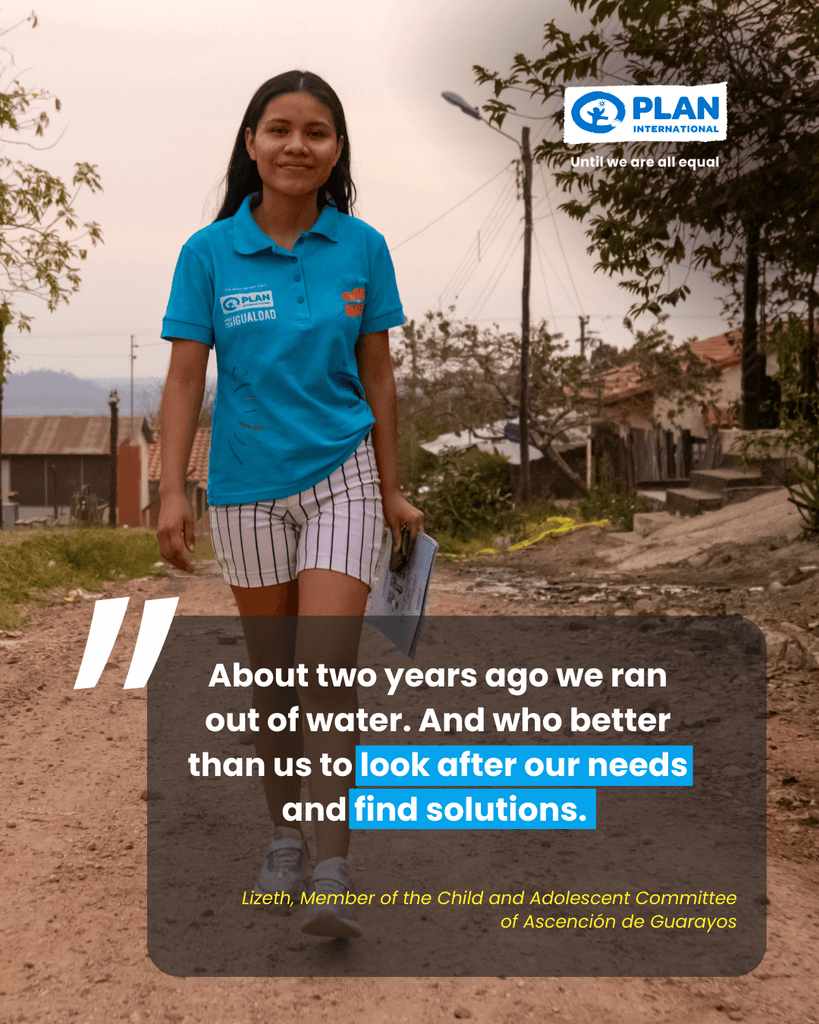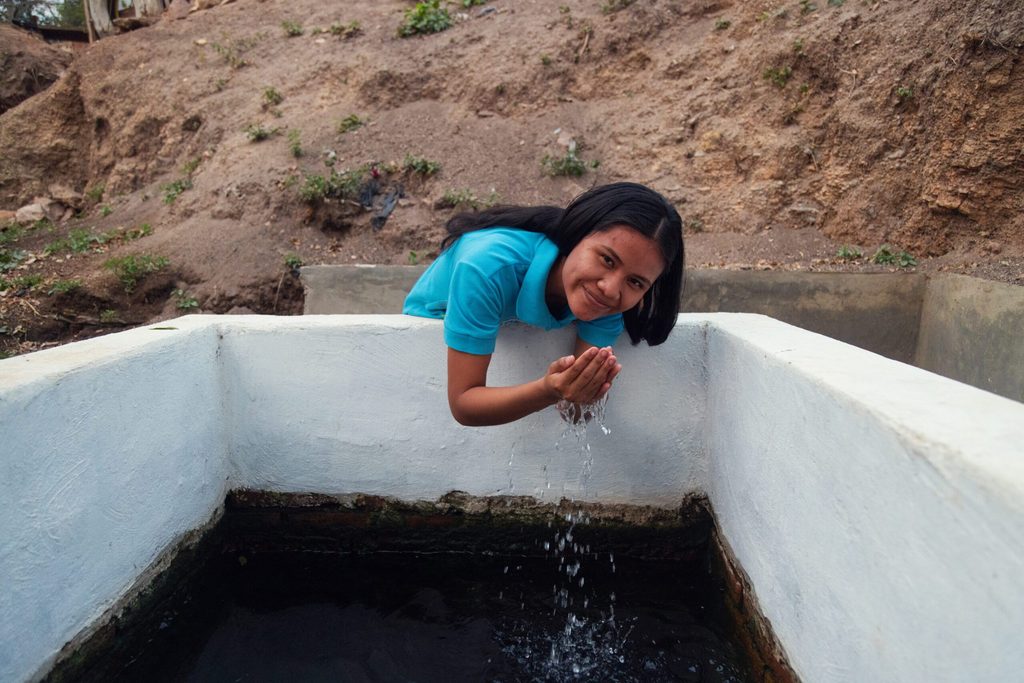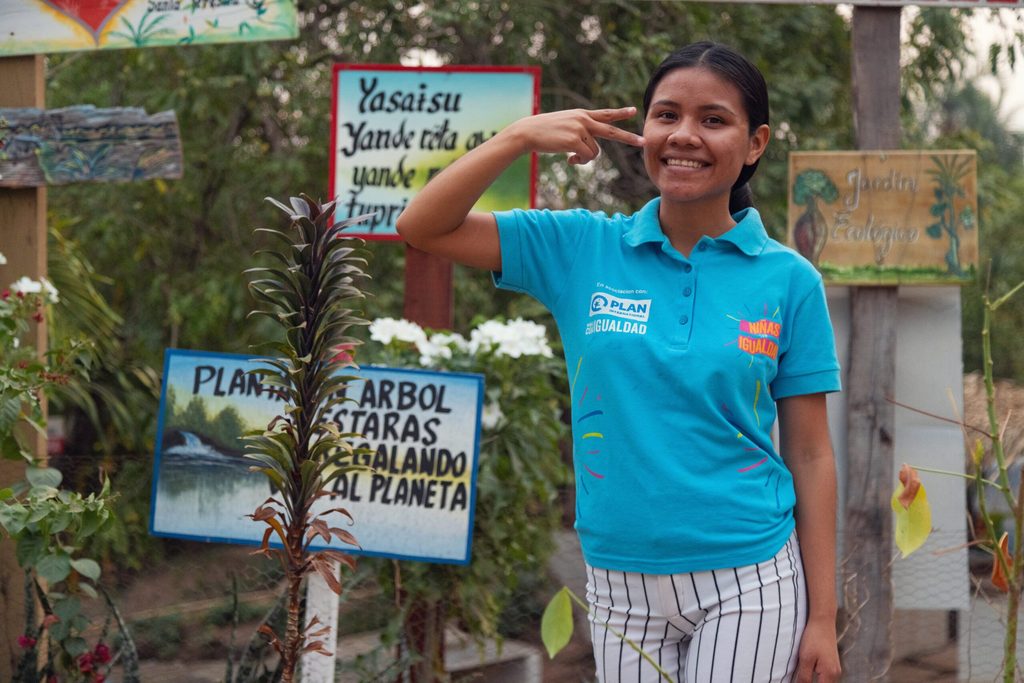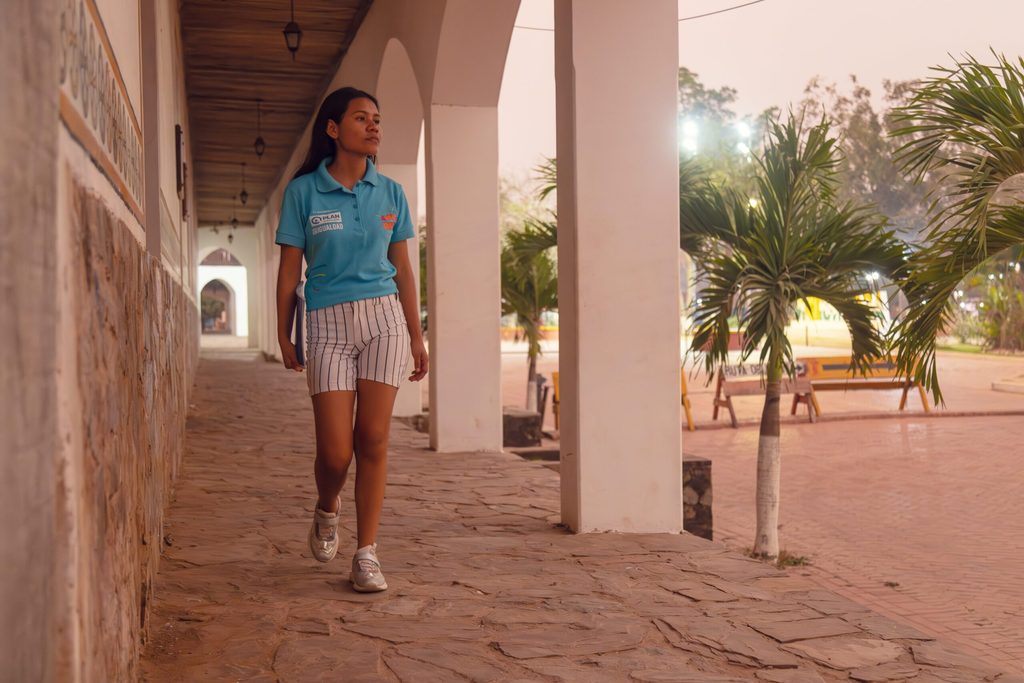Lizeth’s fight for environmental, cultural, and health rights
"Before we had drinking water, our ancestors got water from the paúros," explains Lizeth, pointing to one of them.

A paúro is a stream of water that springs from an underground source or seeps between rocks to then well up to the surface. These natural springs used to be the source of freshwater for several generations in her municipality, in the department of Santa Cruz, Bolivia.
Due to human intervention in the rich ecosystem of the municipality of Ascensión de Guarayos, today, most of the paúros have dried up and have been forgotten, lost in the undergrowth.
The bus ride from Santa Cruz de la Sierra to the area of Ascensión de Guarayos takes six hours. Locals say that along the sides of the road, the woodland is disappearing and the smell of burned wood envelops everything.
Between 2005 and 2018, the deforested area in this municipality doubled to 171,000 hectares, i.e. an area larger than the metropolitan area of Santa Cruz de la Sierra (159,000 hectares).
In theory, Ascensión de Guarayos is working on the conservation of more than half a million hectares of forest. However, over the last decades, the area has changed from being a bright green forest to burned land and grasslands due to a number of threats, including constant forest fires.
As of the second week of August 2024, the Departmental Emergency Operations Committee of the Departmental Government of Santa Cruz had reported more than one million hectares burned down by forest fires. As is the case every single year, one of the worst-affected municipalities is that of Lizeth.
It is in this context that she and another young man from her community made an alliance to develop a paúro conservation project.
Young people facing the water and climate crises

“About two years ago we ran out of water and there was no one else but us to look after our needs and find solutions. We are two young people who want to work for our community.”
Lizeth, 18, explains that her “objective is to have the paúros recognised as Cultural Heritage of Ascensión de Guarayos, guarantee water conservation and ensure that people use water adequately.”
In 2022, people in Lizeth’s municipality walked long distances carrying buckets to fetch water. The water tank trucks made available by the authorities did not bring sufficient water. The situation was dire for several weeks. The water shortage caused by the drought lasted for more than a month.
One year later, at the end of 2023, Civil Defence reported that droughts in Bolivia affected almost half a million families throughout the country. According to various reports, including those prepared by the UN and Plan International, children and women are most affected by the impacts of the water and climate crises.
Faced with this problem, the coalition made up of the Mapeko Foundation and the Committee for Children and Adolescents of Ascensión de Guarayos, of which Lizeth is a member, submitted a bill on conservation of the paúros.
“We understand that it will be enacted soon,” says Lizeth, filled with hope.
A young female leader with a long track record

Lizeth began to forge her leadership when she was only 13. She has since had the opportunity to participate in different programs and projects to become empowered.
A few years later, guided by her desire to contribute to the development of her community, she decided to join the Committee for Children and Adolescents of Ascensión de Guarayos.
“I joined when I was 16 and I had zero knowledge about what a law is, zero knowledge about what regulations are, how I should do things, how I should speak,” Lizeth recalls.
Through the training programmes of organisations like Plan International Bolivia, Lizeth gained sufficient knowledge to face up to the challenge.
In addition, whenever she could, she participated in projects supported by Plan International Bolivia, such as the Leadership School, Girl Power or Empowering Bodies, Empowering Lives. In each of these spaces, Lizeth got the tools she needed to consolidate her leadership.
“As a Committee, we are the first to be elected in Ascensión,” explains Lizeth.
“We have had many tasks, first to be recognised, to be taken into account by the authorities and at the same time to prepare proposals and make sure they become a reality,” she adds.
At the moment, one of her main concerns is the lack of a regulation to the Municipal Youth Law, enacted in 2022.
Advocating for the Guarayo identity

“Young people are not taken into account in places or spaces where they should be heard. (…) There is no support, there is no financial support for young people, there is no youth centre, there is no youth secretary or officer in the Municipal Government. This is something I keep fighting for,” complains Lizeth.
And there is also a structural problem: fragmentation of the community. Many neighbourhood organisations have more than two representatives, who are often at odds with each other.
“They are divided and that is a problem I would like to change in Ascensión,” says Lizeth.
This divisive environment also affects cultural preservation. The Guarayo identity is threatened by shame and the fact that people have forgotten their roots.
“Families are losing their culture, the love for our roots. Grandparents no longer tell stories or teach the Guarayo language. That makes me sad, because we don’t know what will happen to our municipality.”
Lizeth believes that Guarayo youth leadership needs to be strengthened so that young people would revalue their cultural heritage, since many of them “are ashamed to say ‘I am Guarayo’.”


